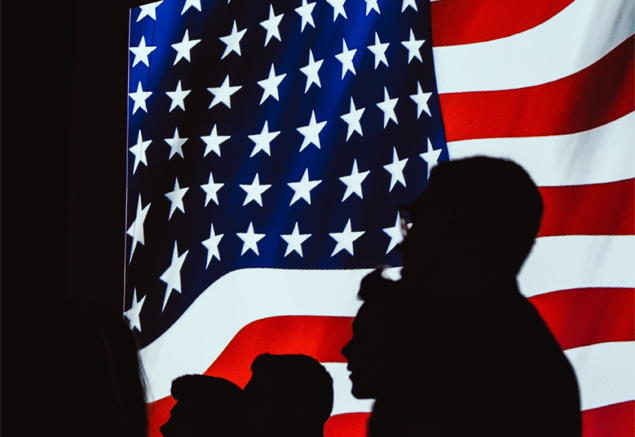By James Strand
The Forgotten Fourth Verse of the National Anthem
Today is July 4, 2018. Today, most Americans will be celebrating Independence Day. Many people are displaying the flag on the front of their houses. Fourth of July parades are going on and people are waving the American flag. Marching bands are playing the Star Spangled Banner, our national anthem. Baseball games are starting with the singing of our national anthem.
Everyone who has ever attended a sporting event is familiar with the first verse of the national anthem. I have a question. Does anyone ever look at the other three verses? The song has four verses. I did a quick search online and came up with information about the national anthem and came up with three more verses.
A little background is necessary to explain the verses. The author of the song, Francis Scott Key, was a witness to the bombing of Ft. McHenry in Maryland by the British Navy during the War of 1812. He was inspired to write the poem after seeing the tattered U.S. flag still flying over the fort at daybreak. The poem he wrote is about a war to maintain our freedom from the tyranny of the British King. It celebrates the victory of the brave men who gave their lives so that we might have the freedom we enjoy years later.
The Questions Asked in the National Anthem Verses 1-3
Looking at all the verses something jumped out at me. The first three verses all have questions in them. The fourth verse does not. It contains the answer to the questions.
The questions in verse one:
Whose broad stripes and bright stars through the perilous fight
O’er the ramparts we watch’d were so gallantly streaming?
O say does that star-spangled banner yet wave
O’er the land of the free and the home of the brave?
The question in verse two:
What is that which the breeze, o’er the towering steep,
As it fitfully blows, half conceals, half discloses?
The question in verse three:
And where is that band who so vauntingly swore,
That the havoc of war and the battle’s confusion
A home and a Country should leave us no more?
The Fourth Verse Gives the Reason the Flag Stood after the Battle
The fourth verse is the lost verse most people are not aware of.
Here is the entire fourth verse of the national anthem:
O thus be it ever when freemen shall stand
Between their lov’d home and the war’s desolation!
Blest with vict’ry and peace may the heav’n rescued land
Praise the power that hath made and preserv’d us a nation!
Then conquer we must, when our cause it is just,
And this be our motto – “In God is our trust,”
And the star-spangled banner in triumph shall wave
O’er the land of the free and the home of the brave.
Why does it not surprise me that you never hear this verse sung very often? The verse is a beautiful verse of praise to God on behalf of a just people who put their trust in God. Secular society does not want to praise God or even admit he exists. Yet, these early patriots did not have this problem.
Praise the Power that hath made and preserved us a nation”
Then conquer we must, when our cause it is just,
this be our motto: “In God is our trust.”
The questions that are asked in the song point to the fact that the flag and the people are still standing after the battle. The poem states that the flag was still standing because these brave patriots put their trust in God. Francis Scott Key acknowledged that God’s power preserved them and kept them from being defeated.
As long as we continue to put our trust in God and praise him for his power on our behalf, God will preserve our nation and enable us to continue to live in freedom. If we forget who has the power to preserve our nation, and if we fail to praise him for his efforts on our behalf, our nation will surely fall to its enemies. I encourage you to praise God for his power that preserves our nation. I encourage you to put your faith and trust in God for our country and pray for our leaders to follow God’s ways. If we do this, we will always be the land of the free and the home of the brave.
Have a happy Fourth of July everyone!
